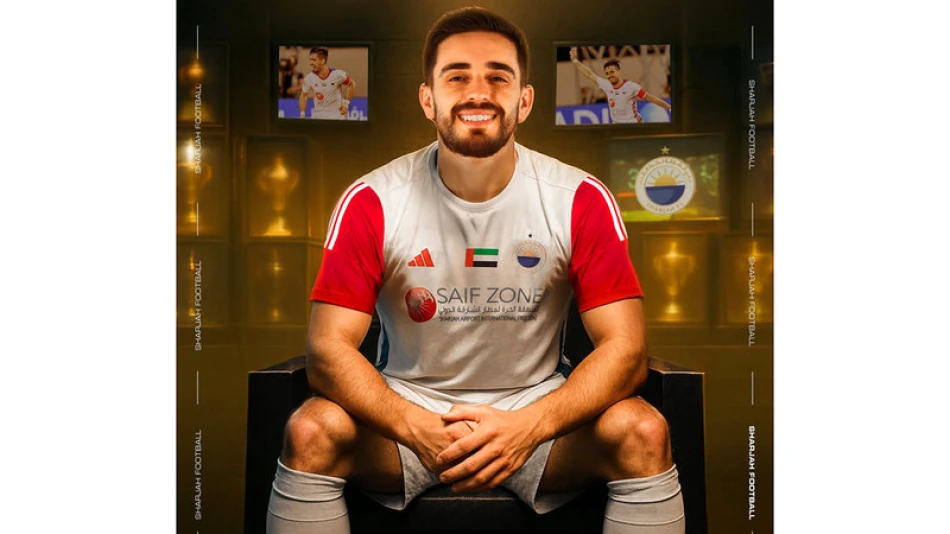
Shamsi Warns Clubs: Prohibit Coaches from Player Transfer Brokerage
UAE Football Clubs Squander Golden Transfer Window with Poor Foreign Player Recruitment
The UAE's professional football league is missing a crucial opportunity to elevate its regional standing as clubs continue to make underwhelming foreign player signings despite substantial financial investments. With the summer transfer window running until October 1st, player agent Walid Khalifa Al Shamsi warns that poor recruitment strategies are undermining the league's competitiveness across Asia.
Lackluster Start to Transfer Season
The current transfer window, which opened last Saturday, has produced remarkably few standout signings among UAE professional clubs. Al Shamsi highlighted that only Sharjah's acquisition of Brazilian player Igor Coronado represents a notable foreign signing, though he cautioned that the player is "in the final stages of his career" despite his previous strong performances with the club.
This tepid start reflects a broader pattern of strategic missteps that have plagued UAE football's international recruitment efforts. While clubs possess significant purchasing power in both domestic and foreign player markets, their execution continues to fall short of expectations.
Strategic Recommendations for Better Recruitment
Leveraging Current Tournaments
Al Shamsi urged UAE clubs to capitalize on ongoing international competitions as scouting opportunities. He specifically pointed to the recent Club World Cup in the United States and the upcoming African Nations Championship for local players, scheduled for next month across Tanzania, Kenya, and Uganda.
The African tournament presents a particularly cost-effective opportunity, with round-trip flights to Tanzania costing just $1,000. This represents exceptional value for clubs seeking to identify talent across all positions, yet many organizations continue to rely on video assessments rather than deploying scouts for direct evaluation.
Avoiding Common Pitfalls
The agent emphasized the need for clubs to establish clear boundaries in their recruitment processes. He warned against allowing coaches to act as intermediaries in player selection while simultaneously cautioning against imposing specific players on coaching staff without consultation.
This balanced approach reflects lessons learned from European leagues, where successful clubs maintain clear separation between sporting directors, coaches, and commercial interests in transfer decisions.
Quality Over Quantity Approach
Al Shamsi criticized clubs for prioritizing volume over impact in their transfer strategies. He argued that signing three exceptional players who can make a genuine difference would prove more valuable than recruiting seven or eight mediocre performers with minimal technical contribution.
This philosophy mirrors successful models in leagues like the Saudi Pro League, which has attracted global attention through high-profile, strategic signings rather than scattershot recruitment approaches.
Regional Competitive Implications
The UAE league's current trajectory threatens its standing among Asian professional competitions. Poor foreign player recruitment undermines the league's ability to compete with rising standards in Saudi Arabia, Qatar, and other regional markets that have invested heavily in football infrastructure and talent acquisition.
Al Shamsi questioned how the UAE league could achieve top-tier Asian status while continuing to recruit substandard foreign players despite substantial financial investments. He noted instances where clubs generated significant media attention around signings that ultimately proved disappointing in terms of on-field performance.
Market Dynamics and Future Outlook
The current transfer window represents more than just roster adjustments—it's a critical test of UAE football's strategic direction. With increased financial resources available, clubs face pressure to demonstrate that investment translates into improved league quality and regional competitiveness.
Success in this transfer window could help reverse the UAE league's declining regional reputation, while continued poor recruitment decisions risk further marginalization in an increasingly competitive Asian football landscape. The stakes extend beyond individual club performance to encompass the league's long-term viability and international standing.
Most Viewed News

 Sara Khaled
Sara Khaled






